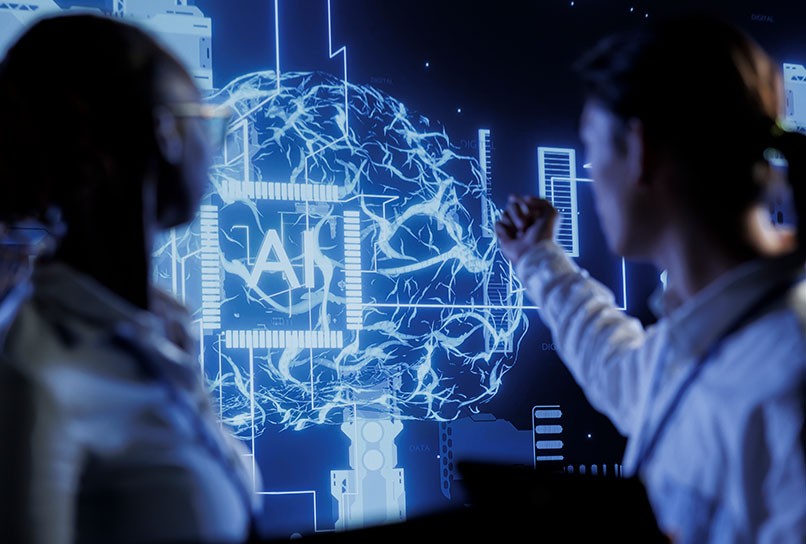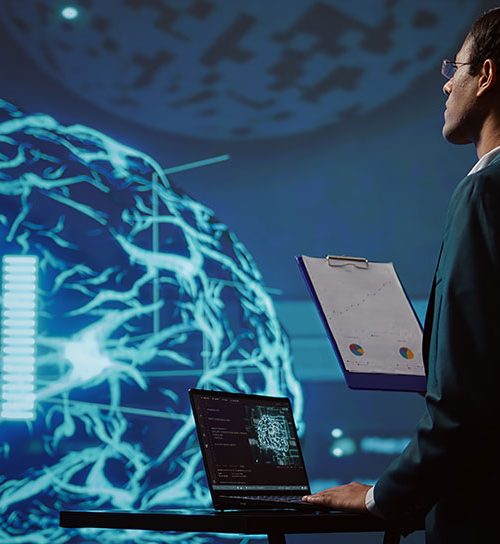AI in Learning and Development: The Ultimate Guide for L&D and HR Leaders

Since late 2022, Artificial Intelligence (AI) has captured global attention, with Generative AI (Gen AI) leading the charge. Once a niche concept, searches for AI and Gen AI have skyrocketed, almost a clear reflection of their quick rise to prominence.
The AI buzz, of course, hasn’t skipped Learning and Development (L&D). In fact, AI has dominated most discussions at industry conferences and featured prominently in so many reports. By 2025, AI is expected to revolutionize training and development further, making it faster, smarter, and more personalized than ever. The numbers speak for themselves—studies estimate the AI market in workplace learning could soar to $6 billion by then.
But widespread interest doesn’t automatically translate to effective implementation. To truly harness the potential of AI, L&D and HR teams need to understand its strengths, identify where it adds value, and integrate it thoughtfully into their learning strategies.
Also Read: Best Practices to Unlock AI’s Full Potential for L&D Success
Understanding AI in Learning and Development
AI in L&D is all about using intelligent technologies like machine learning, natural language processing, and data analytics to automate and personalize training processes. It can curate content tailored to individual learner needs, analyze learning patterns, and provide actionable insights. But then, most in the industry are already familiar with this potential of AI.
What we as L&D folks need to now do is pay more attention to leveraging AI for predicting future skill gaps in our workforce which can enable us to proactively design training interventions that help us stay one step ahead of organizational needs.
Benefits of AI in Corporate Training
Personalized Learning at Scale
AI facilitates tailored learning experiences for diverse employee groups, ensuring relevance and effectiveness. For example, the best AI corporate training software enables individual progress tracking and custom content delivery, catering to varied learning paces and styles.
Improved Engagement
Interactive training platforms for employees leverage microlearning and gamification to boost engagement. Employees can access bite-sized, task-specific content, making learning more accessible and enjoyable.
Enhanced Efficiency and Cost Savings
AI automates time-consuming administrative tasks, such as scheduling and tracking progress. These efficiencies translate to significant cost savings over time. Additionally, corporate training platforms with AI minimize manual intervention, freeing up HR teams to focus on strategic goals.
The Future of AI in Learning and Development: Key Use Cases
The future of AI in L&D lies in innovations like predictive analytics and virtual reality simulations which will redefine skill development, making training more immersive and effective.
Here are some use cases where AI-powered learning platforms can transform how L&D and HR teams deliver learning experiences.
1. Quick Content Authoring
AI has transformed content creation from a labor-intensive process to a streamlined one. By analyzing templates, prompts, and input parameters, AI tools quickly generate audio, video, and interactive content. For example, onboarding materials that earlier took weeks to create can now be tailored and customized for specific roles using AI in just days.
2. Instant Insights
AI-powered tools like those using natural language processing (NLP) summarize complex documents, research papers, and compliance updates in seconds. In industries such as BFSI and Pharma, where compliance is critical, L&D teams can use these tools to integrate the latest updates into training programs efficiently.
3. Skill Assessment
AI tools analyze data to create personalized evaluations based on an employee’s role and skill level. This ensures accurate assessments and targeted skill development. Large MNCs can use these AI-driven tools to tailor skill assessments for their sales teams, ensuring the evaluations align with industry standards.
4. Assessment Integrity
AI-proctoring solutions enhance the credibility of online assessments by detecting anomalies like unauthorized assistance or inattentiveness. For remote certification exams, these systems can ensure reliable results while enabling employees to test from anywhere.
5. Talent Management
AI-driven tools like FRAC Modeling help HR teams develop competency frameworks and job descriptions tailored to organizational needs. For example, a pharmaceutical company can use AI to create precise job descriptions for specific positions like Clinical Research Associates to ensure compliance and competency alignment.

Unleash the power of AI in your LMS & LXP
- Hyper-personalization
- Task Automation
- Enhanced Employee Engagement
6. Hyper-Personalization
AI tools recommend content tailored to individual learners’ preferences and skill levels, improving knowledge retention and engagement. A programming course on an AI-powered platform, for example, can offer tutorials or real-world projects specific to each learner’s expertise.
7. Just-in-Time Learning
AI-powered chatbots and search tools provide real-time access to information, seamlessly integrating into platforms like MS Office. During a client call, customer support agents can use chatbots to retrieve product information, enhancing the support experience.
8. Sales Training
AI-powered simulators offer realistic scenarios for sales teams, providing instant feedback and coaching. Sales reps can practice handling objections or negotiations in simulated environments before applying their skills in real-world settings.
9. Virtual Coaching
AI-driven virtual coaches provide on-demand guidance, offering insights and recommendations to support learners in their roles. For example, a marketing professional refining a campaign can rely on AI advice to optimize ad copy or demographic targeting.
Final Words
As AI drives a revolution in L&D, L&D and HR teams need to evaluate learning platforms and select the most suitable solution for their needs.
At Enthral, we understand the challenges of modern training and upskilling. That’s why our AI-powered LMS and LXP are designed to equip you with the tools you need to transform your L&D efforts and drive your team’s success.











